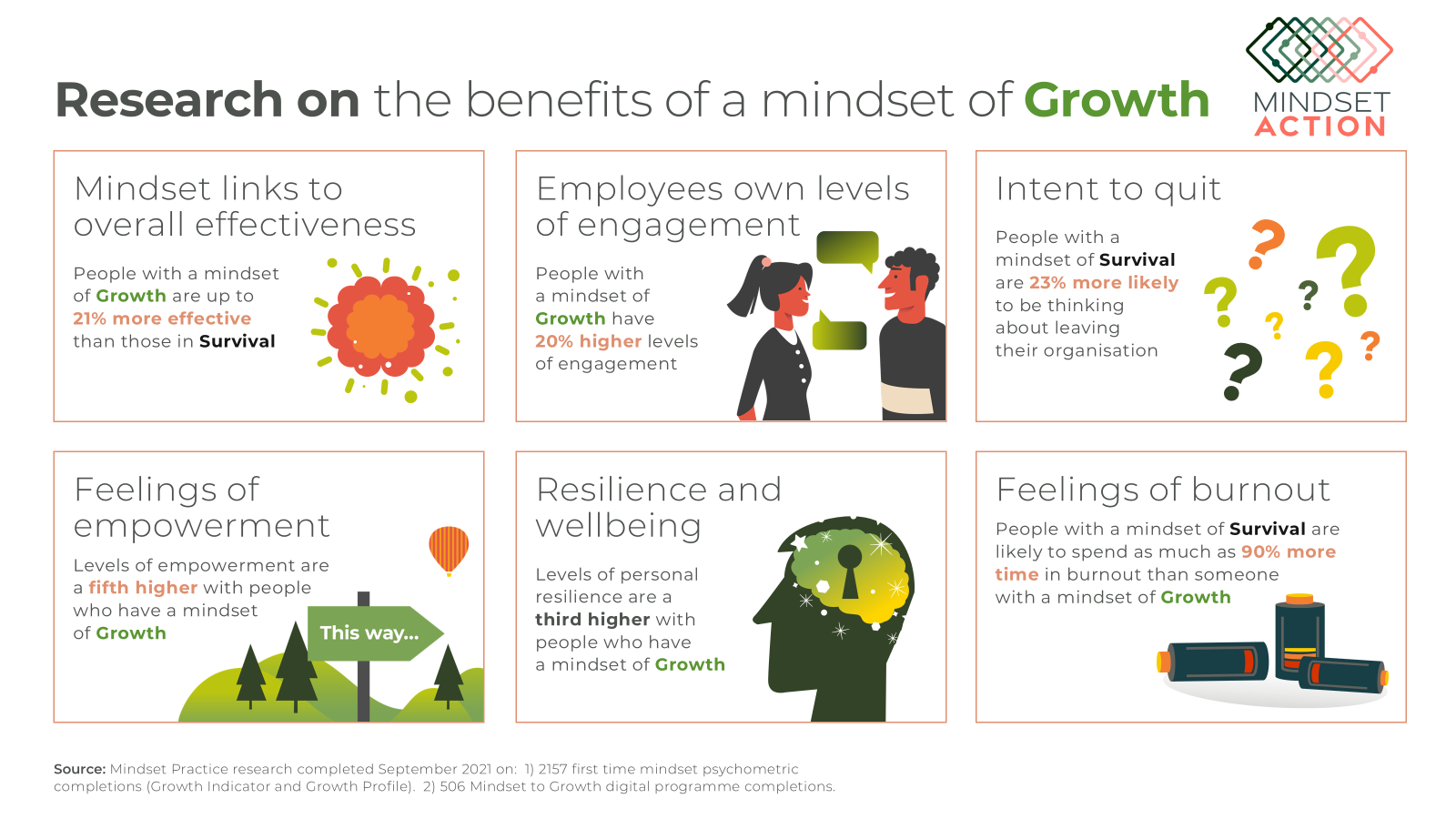During the three sessions, eight participants shared their experiences on how a growth environment can propel performance, resilience, creativity, and psychological safety—all essential for tackling complex biomedical science challenges. By fostering a culture of psychological safety and promoting learning agility, the course helped attendees cultivate a more open, creative, and solution-driven mindset, critical to advancing the 3Rs principles in biomedical research.

The attendants of the MTG program had access to the innovative Growth Indicator psychometric tool, which helped them to identify and challenge mental habits limiting their potential. This tool consists of a pretest before the course and a post-test six months after, allowing the measurement of long-term progress. In that way, the participants highlighted the course's accessibility, with long-term access to training materials (up to 12 months) allowing for sustained habit changes and continued personal development.

The feedback emphasized the program's positive impact on enhancing collaboration and fostering a nurturing research environment, aligning perfectly with the goals of the CA21139 - IMPROVE network. Stay tuned for more empowering opportunities aimed at elevating scientific excellence and leadership in research!

During the virtual mobility (VM), it was given as a 1-hour workshop about grant writing as storytelling.
The workshop was structured in two parts, both focusing on effective grant writing as a narrative practice.In the first part, it was emphasized the importance of viewing grant writing as a form of storytelling. And highlighted how this approach can help researchers communicate their projects more compellingly and persuasively to grant reviewers. The session focused on the underlying reasons why structuring research proposals in a narrative form can increase the chances of success.
The second part provided participants with a rhetorical framework designed to guide researchers in shaping the narrative of their grant proposals. It was shared practical insights, grounded in my own experience as an academic researcher, on how to craft a clear and impactful narrative that addresses the core criteria reviewers look for. This section of the workshop equipped participants with strategies for articulating their research ideas in a way that effectively communicates the value of their proposals. Moreover, supported document was shared that included some information about writing skills guidelines.

Young researchers committee hosting the section and during the workshop primarily we tried to get involved young researchers actively engaging with the content, participating in discussions, and reflecting on how these strategies could be applied to their grant writing efforts.
The workshop’s alignment with the COST Excellence and Inclusivity Policy ensured a diverse mix of participants in terms of geographical representation, career stage, and gender.
The TATAbox is a game which gathers players around a common goal: inspire innovation & encourage collaboration to make New Approach Methodologies (NAMs) a reality.
The session brought together teams from the COST Action IMPROVE from Vienna (Austria), Rome (Italy) and Prague (Czech Republic) and the course moderator Valentin Salamone from Altertox on 21st of May 2024.
The IMPROVE partners received a training about the TATAbox as well as a video tutorial before playing the game. Participants were introduced to the new education material dedicated to teaching about validation of alternatives to animal testing. Moreover, the IMPROVE partners were trained also to use this material for their master and bachelor students afterwards in their course.

The online course covered following aspects:
- To facilitate engagement and interaction around NAMs (new approach methodologies)
- To dive into the ecosystem of NAMs by playing the role of the key stakeholders involved in the
development of NAMs ( NGO, SME, Academia, Industry) - To learn NAMs and the Associated vocabulary (Glossary)
- To identify the key steps necessary for the validation of NAMs
- To stimulate collaboration between stakeholders in the chain of development of 3Rs or non-animal methods and technologies.
- To collaborate between end-users and developers (e.g. industry, regulators, biotech companies,
policy makers) and increase the chance that developments meet performance criteria, which are
fit-for-purpose and will actually be used, accepted and implemented - To study and understand behavior of stakeholders and identify the drivers that cause them to
use either (traditional) animal studies/methods or to choose for non-animal methods or
combinations of them. Arguments may be diverse, e.g. ethical, common practice, scientific, … - To increase cross-disciplinary science which is expected to lead to more effective research
strategies, and hence, fewer animal testing. Stimulation of cross-disciplinary science starts with
implementation of a cross-disciplinary learning environment. The network could organize a
working group on interdisciplinary research for the purpose of fewer animal testing. - To attract next generation of Young Researchers and Innovators (YRIs) for the 3Rs field, support
them to learn about the manifold subjects, topics and possibilities in the field to contribute to the
improvement of biomedical science in general and foster their education via workshops, training
schools, conferences, etc.
Following learnings and positive feedbacks were collected after the online course:
- New information" and "thinking about": the game is very nice because it allows to learn the time course of the activities for the validation of new alternative methods. So I think it will be very useful for our students!
- Definitions connected to NAMs
- Learned some new terms in particular towards in silico modelling
- New definitions in the field of NAMs
- “During the second part of the workshop, some participants realised that they did not know enough about validation and encouraged them to learn more about the topic.
